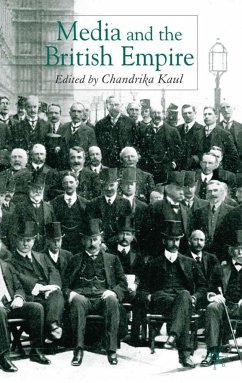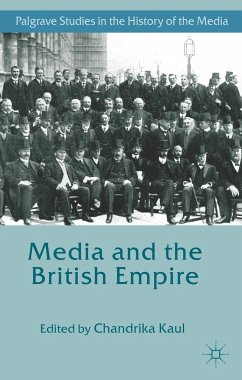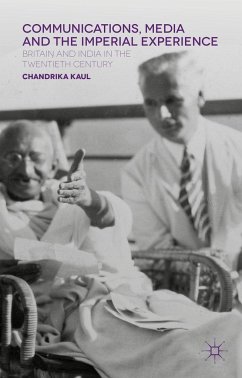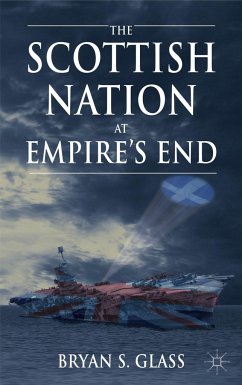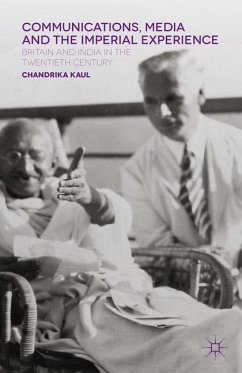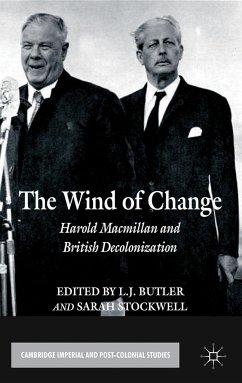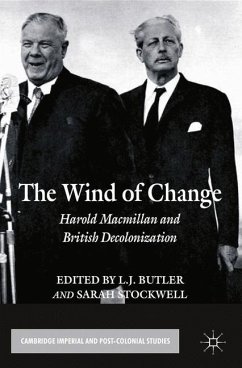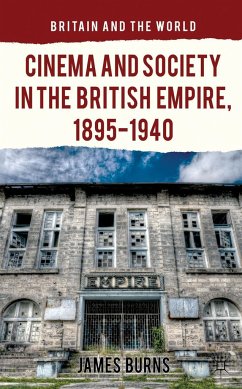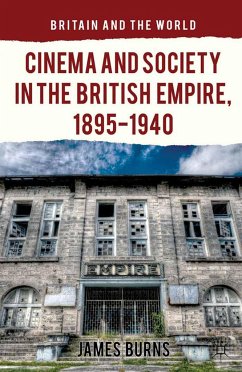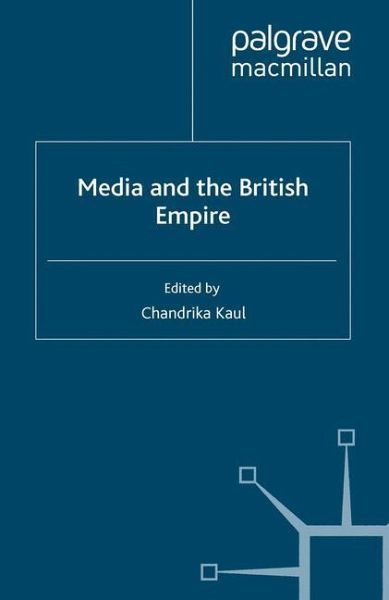
Broschiertes Buch
Media and the British Empire
Versandkostenfrei!
Versandfertig in 6-10 Tagen
Weitere Ausgaben:

PAYBACK Punkte
38 °P sammeln!





'The only true history of a country', wrote Thomas Macaulay, 'is to be found in its newspapers'. This book explores how the media shaped and defined the economic, social, political and cultural dynamics of the British Empire by viewing it from the perspective of the colonised as well as the colonisers.
ALAIN CANUEL Researcher PHILIP CASS Acting Assistant Dean, College of Communication and Media Sciences, Zayed University, Abu Dhabi, UAE DENIS CRYLE Lecturer in Media and Communication Studies, Central Queensland University, Australia ROSS HARVEY Professor of Library and Information Management, Charles Sturt University, Australia DEANA HEATH Lecturer in South Asian and World History, Trinity College, Dublin, Ireland JOHN LAMBERT Associate Professor, Department of History, University of South Africa, Pretoria, South Africa JOANNA LEWIS Lecturer in Imperial and African History, Department of International History, London School of Economics, UK SU LIN LEWIS Researcher JOHN M. MACKENZIE Professor Emeritus of Imperial History, Lancaster University, UK PHILIP MURPHY Reader in Imperial and Commonwealth History, University of Reading, UK TIM PRATT Researcher IAN ST. JOHN Researcher MARK TULLY Researcher SUSAN WILLIAMS Fellow, Institute of Commonwealth Studies, University of London, UK PHILIP WOODS Lecturer in History, Thames Valley University, UK
Produktdetails
- Palgrave Studies in the History of the Media
- Verlag: Palgrave Macmillan / Palgrave Macmillan UK / Springer Palgrave Macmillan
- Artikelnr. des Verlages: 978-1-349-52522-5
- 1st ed. 2006
- Seitenzahl: 266
- Erscheinungstermin: 1. Januar 2006
- Englisch
- Abmessung: 216mm x 140mm x 16mm
- Gewicht: 361g
- ISBN-13: 9781349525225
- ISBN-10: 1349525227
- Artikelnr.: 45076697
Herstellerkennzeichnung
Libri GmbH
Europaallee 1
36244 Bad Hersfeld
gpsr@libri.de
"Media and the British Empire is a wide-ranging and fascinating collection of essays, which describe and examine the role of the media in the empire during the 19th and 20th centuries. As some of the contributions dramatically illustrate, that role was extremely significant." - Bill Kirkman, The Round Table
"Media and the British Empire is thoroughly interdisciplinary. It innovatively integrates media and imperial politics across the colonies, as well as within them, and synthesizes specific incidents with theoretical explorations of media permeability that permitted local and even individual voices to resist imperial power. These essays, conveying how Victorian press developments persisted well into the twentieth century, offer incisive, counter-intuitive insights into the ways national and class identities cohere and diffuse around the reporting of events. Despite collaborations with the politically powerful, media do not fully control news reception and can be undone by rumor or individual persistence. Without erasing realities of imperial repression, this excellent anthology reassesses empire as non-monolithic, dialogic, dialectical processes subject to highly nuanced metropolitan and colonial imperial media variables to expand our understanding of the complex textures of imperial media." - Julie F. Codell, Victorian Studies
"Media and the British Empire is thoroughly interdisciplinary. It innovatively integrates media and imperial politics across the colonies, as well as within them, and synthesizes specific incidents with theoretical explorations of media permeability that permitted local and even individual voices to resist imperial power. These essays, conveying how Victorian press developments persisted well into the twentieth century, offer incisive, counter-intuitive insights into the ways national and class identities cohere and diffuse around the reporting of events. Despite collaborations with the politically powerful, media do not fully control news reception and can be undone by rumor or individual persistence. Without erasing realities of imperial repression, this excellent anthology reassesses empire as non-monolithic, dialogic, dialectical processes subject to highly nuanced metropolitan and colonial imperial media variables to expand our understanding of the complex textures of imperial media." - Julie F. Codell, Victorian Studies
Für dieses Produkt wurde noch keine Bewertung abgegeben. Wir würden uns sehr freuen, wenn du die erste Bewertung schreibst!
Eine Bewertung schreiben
Eine Bewertung schreiben
Andere Kunden interessierten sich für




